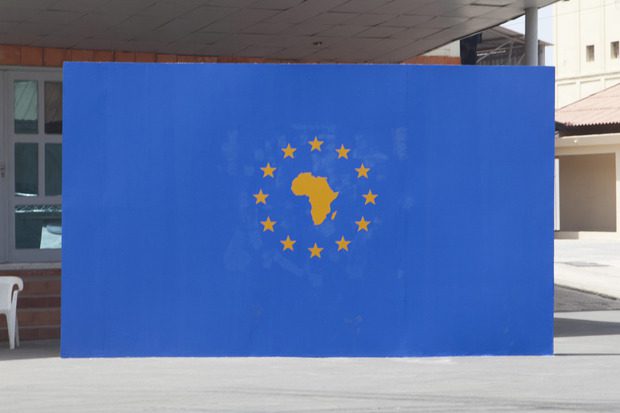Columbia University, New York, United States
04 Mar 2016

Kiluanji Kia Henda, ‘O.R.G.A.S.M. (As god wants and devil likes it)’, Courtesy: Artist
Biennales are part of a global network that produces and disseminates contemporary art, as well as a platform for grappling with such issues as politics, race, identity, globalization, and postcolonialism.
Since 1985, various African constituencies have organized biennales as a means to participate in the world dialogue on contemporary art and to nourish local imaginaries. The present symposium takes the 4th Biennale in Lubumbashi (Congo-Kinshasa) as a point of departure to explore “biennale cultures” from the original perspective of a group of artists who have developed an alternative platform to engage and re-author their post-colonial history. Why have biennales found so much more traction in the French-speaking countries? And what is their impact on global artistic practice? As Terry Smith asks, “Who gets to say what counts as contemporary art?”
2:00 Welcome
2:10 Toma Muteba Luntumbue (Artist / Artistic director, 4th edition of the Biennale Lubumbashi) in conversation with Sandrine Colard (Columbia
University)
3:00 Ugochukwu-Smooth C. Nzewi (Co-Curator, 11th edition of Dak’Art Biennale; Curator of African Art, Hood Museum of Art, Dartmouth College)
« Dak’Art Biennale’s Cultural Pan-Africanism and Neoliberal Globalism.”
3:30 Maureen Murphy (University of Paris 1 Panthéon-Sorbonne)
« Inventing the world, the second Benin Biennial, 2012 ».
4:00 Coffee Break
4:30 Z. S. Strother (Riggio Professor of African Art, Columbia University)
“Soft Power: The French Politics of Contemporary African Art”
5:00 Kendell Geers (Artist / Advisory Committee Johannesburg Biennials)
5:30 Chika Okeke-Agulu (Princeton University) will lead a broader discussion on
the nature and significance of “biennale cultures” in Africa.
6:15 Reception
This event is co-sponsored by Labex CAP, Alliance Program, Department of Art History and Archaeology, Columbia University, FACE-Partner University Fund, Department of Art History, Barnard College.